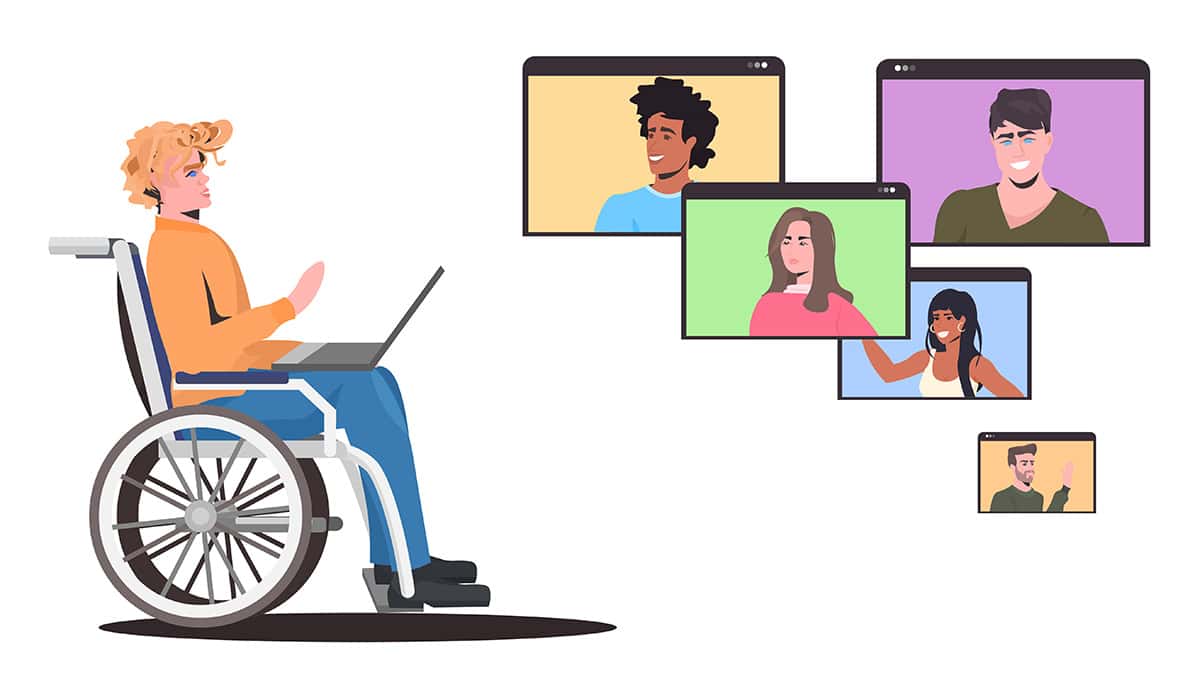
The percentage of people with a disability in UK physics has halved in recent years, according to an analysis by the Lightyear Foundation – a charity that helps children with disabilities to engage with technical subjects. The finding, which was based on statistics obtained via a freedom of information request by the foundation, also shows that the representation of people with disabilities is lower in physics than it is in the chemical or biological sciences.
According to data from the 2021 UK census, 17.8% of people in England and Wales have some form of disability. But separate data from the UK’s Office for National Statistics (ONS) indicate that just 7.7% of those working in the physical sciences have a disability – almost half the 14% reported in 2020. The ONS data also indicate that 8.4% of people working in the chemical sciences and 9.7% in the biological sciences have a disability.
Although the census and ONS data come from different sources, the ONS says the same definitions were used so the figures should be comparable. But why so few people with disabilities work in the physical sciences is not clear. It has been suggested that the term “physical sciences” is simply off-putting for people with physical disabilities. The need to do fieldwork or labwork could be other reasons.
While further research is needed to establish the cause of this apparent decrease, physicist Claire Malone, who is STEM Lead at Lightyear, speculates that the Covid-19 pandemic may have reduced one-to-one support from teachers and supervisors. “This is particularly a problem for disabled students and scientists who require additional assistance to complete their studies,” she says. “I have experienced this first-hand in environments with limited wheelchair access that prevented me from directly collaborating with my peers.”
Diverse voices
To combat the underrepresentation in physics, Lightyear has teamed up with the Planet Possibility campaign, run by the Institute of Physics and the educational charity Future First, to launch the Role Models programme.
It is creating written profiles and video interviews of disabled “role models” to share with schools. The programme also highlights the challenges that disproportionately affect disabled people in academia, from underfunding and a culture of overworking to stress around frequent relocations, as well as strengthen accessibility and inclusivity efforts among the wider scientific community.
Since many disabilities are hidden, the physics role models are calling for others to be understanding and not assume that everyone will find situations equally manageable. “It’s so important for young disabled people to see people like them in [science] so they know these roles are just as much for them too,” says Hamied Haroon, a physics role model at the University of Manchester. “When I was growing up, the late and great Stephen Hawking made me proud to be disabled – although, unfortunately, not everyone has the privileges and support he had.”

The benefits of making physics a more accessible discipline
The Role Models programme also highlights the unique advantages that disabled people can bring to science. “Problem solving is most effective when you have wide and diverse voices contributing to the discussion,” says Sara Fletcher, a physics role model who works at the ISIS Neutron and Muon Source in Oxfordshire. “People with disabilities can have a lifetime of experience in finding alternative ways to do things, we can bring a new perspective, ask different questions and challenge things other people take for granted.”
